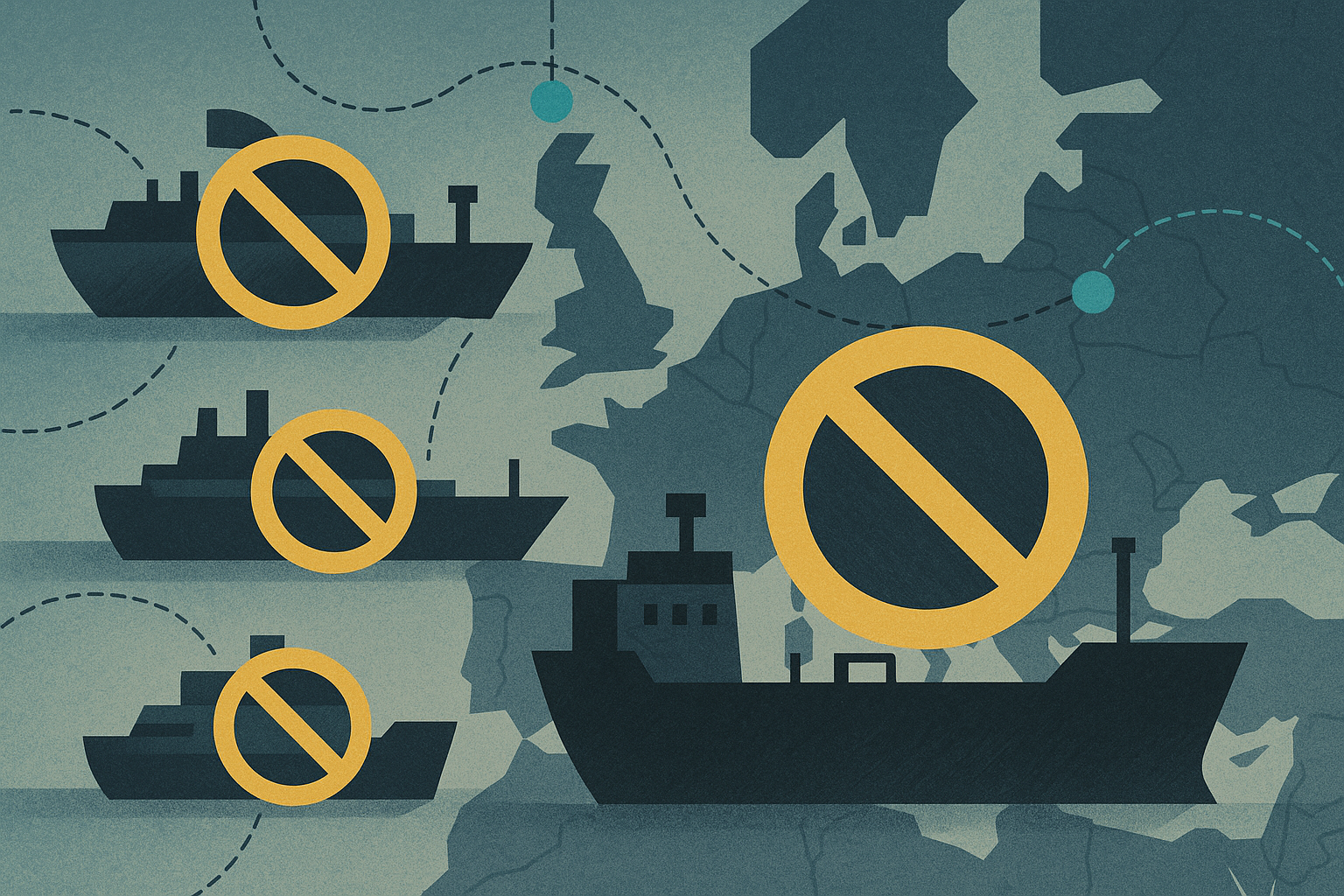The European Union has implemented its most stringent energy sanctions on Russia to date, as its eighteenth sanctions package came into force on 18 July 2025. The measures — described by Brussels as “one of our strongest packages to date” — introduce a dynamic oil price cap, far-reaching bans on refined fuel imports, and further clamp down on shipping networks linked to Moscow’s war in Ukraine.
Under the new rules, the G-7 price cap on Russian crude oil has been reduced from the previous fixed level of $60 per barrel to a dynamic ceiling — currently set at $47.60, or 15% below market rates. The cap will now adjust monthly in line with Brent crude, automatically resetting to 15% below the benchmark price. The intention, EU officials say, is to close loopholes that allowed Russian oil to trade above the previous threshold, and to directly shrink the Kremlin’s war revenues.
A second key provision is a ban on imports of fuels refined from Russian crude in any third country — a significant expansion of prior measures. This ban, which comes into full effect on 3 September after a 45-day transition, applies to all EU member states, with the only exemptions granted to the US, UK, Canada, Norway, and Switzerland in line with mutual sanctions policies. Brussels has also blacklisted an additional 105 “shadow-fleet” tankers — vessels identified as facilitating Russian oil exports — as well as India’s Nayara Energy, one of the largest non-Russian refineries processing sanctioned crude. In total, the EU’s shadow-fleet ban now targets 444 ships, representing nearly 28% of the world’s medium-range dirty tanker fleet.
Market reaction to the announcement has been measured. Brent crude prices remained flat at $69.18 per barrel on 21 July, with traders weighing up both the likelihood of strict enforcement and the prospect of further tariffs threatened by the US. “The market is not convinced the ban will be enforceable,” commented Warren Patterson, head of commodities strategy at ING, noting that Brent is likely to remain in the $64–$70 range for now. The Kremlin, for its part, dismissed the measures. “We have already acquired a certain immunity from sanctions,” said Dmitry Peskov, spokesman for the Russian government.
The ban on third-country fuels is likely to have significant knock-on effects for major suppliers to Europe, particularly India, Turkey, and the UAE. Indian think tank GTRI has warned that up to €5 billion in Indian fuel exports could be at risk, with refiners such as Nayara and Reliance now facing exclusion from European markets. The additional shipping restrictions further complicate global flows, as many newly blacklisted vessels had been used to obscure the origin of Russian oil and bypass existing curbs.
Enforcement, however, remains the package’s central challenge. Once Russian crude is refined abroad, tracing its origin becomes extremely difficult — a problem acknowledged by both industry analysts and EU officials. Monitoring and compliance burdens will now fall heavily on customs authorities and refiners outside Europe. Meanwhile, Malta, Greece, and Cyprus succeeded in securing limited carve-outs for their shipping industries before supporting the deal, and the US has declined to align with the lower price cap, limiting the overall reach of the sanctions.
Looking ahead, market watchers expect further developments in the coming months. The International Energy Agency will publish updated data on Russian oil flows in August, while the US is considering 100% tariffs on buyers of Russian oil — a move which could take effect as early as 1 September. EU diplomats are also preparing for negotiations on a potential nineteenth sanctions package later this year, as efforts to restrict Moscow’s access to energy revenues continue.




